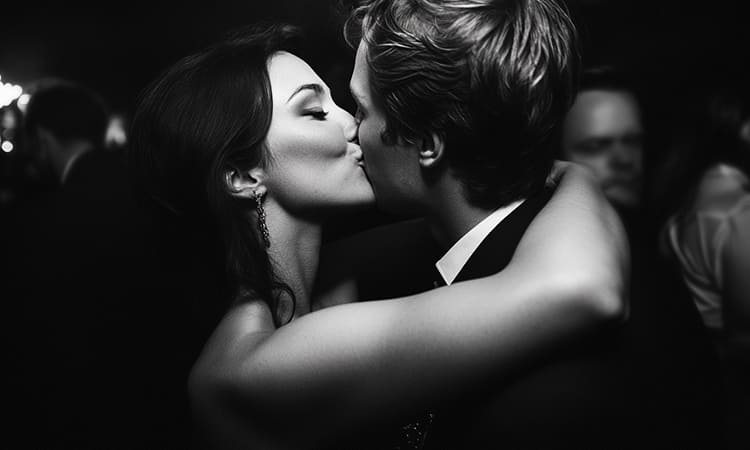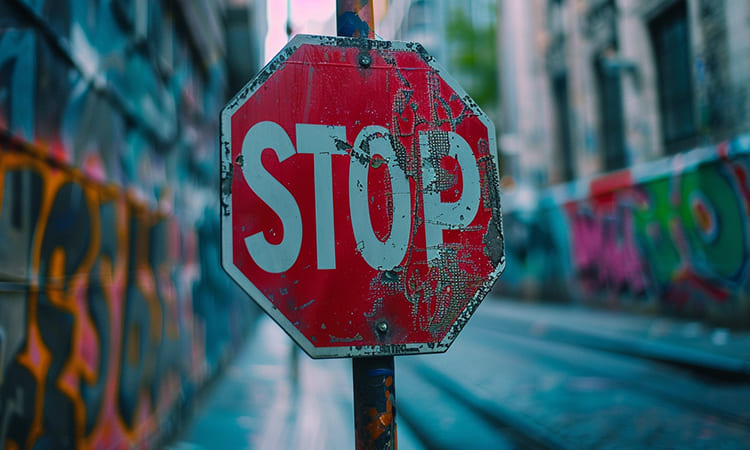In my extensive experience as a psychologist sitting with clients exploring their inner worlds and relationships, I’ve often witnessed the blend of anticipation and anxiety accompanying the seemingly simple, yet profoundly difficult, step of starting to date.
Perhaps you’ve never dated before, or maybe you’re returning to the dating scene after a long hiatus – a relationship ending, a period focused on career or family, or perhaps just a feeling that “now is the time.”
Whatever your starting point, the prospect can feel overwhelming.
Where do you even begin? What are the rules (are there even rules anymore)?
How do you handle the inevitable vulnerability and potential for rejection?

In my practice, I often emphasize that dating isn’t just about finding a partner; it’s a powerful journey of self-discovery.
It’s a chance to learn about yourself, what you value, what makes you feel alive, and how you connect with others.
Framed this way, it becomes less about a pass-or-fail test and more about exploration and growth.
So, if you’re standing at the edge of this sometimes-daunting landscape, wondering how to take that first step, let’s break down the process together.
It starts not with swiping right or asking someone out, but with a journey inward.
The Crucible Within: Forging Your Inner Readiness
Before you even think about who to date, let’s talk about you.
Dating from a place of wholeness, rather than neediness or a desire to “complete” yourself, is foundational for healthy connections.
Understand Your “Why”
Why do you want to start dating now? Is it genuine curiosity about meeting new people?
Are you looking for a specific type of relationship? Are you feeling societal pressure?
Getting clear on your motivations helps set intentions and manage expectations.
Dating because you want to share experiences and connect is very different from dating because you feel you should or are afraid of being alone.
Assess Your Self-Worth
This is critical. Do you believe you are inherently worthy of love, respect, and connection, regardless of whether someone wants to date you?
Rejection is a reality of dating, and it’s far less devastating when your self-esteem isn’t entirely tied to external validation.
If your self-worth is shaky, consider working on this first, perhaps through self-compassion exercises, therapy, or focusing on personal achievements and strengths outside of relationships.
Identify Your Values and Needs
What are you truly looking for in a connection?
Beyond superficial traits, what values are important to you in a partner and in a relationship (e.g., kindness, humor, ambition, stability, adventurousness)?
What are your fundamental boundaries? What kind of support or companionship do you need?
Clarity here helps you choose potential partners more wisely and recognize incompatible dynamics early on.
Mind the Fear Gremlins
Starting anything new brings up fears: fear of rejection, fear of not being good enough, fear of awkwardness, fear of getting hurt.
Acknowledge these fears. They are normal. Don’t try to eliminate them, but learn to act despite them.
Challenge catastrophic thinking (“If this date goes badly, I’ll be alone forever!”). Remind yourself that a single interaction doesn’t define your entire future.
Beyond the Mirror: Cultivating Your ‘Dating Self’
Getting ready to date isn’t just about updating your wardrobe or profile pictures.
It’s about cultivating a version of yourself that is open, authentic, and ready to connect.
Get Your Own Life Thriving
People are attracted to vitality and purpose. Are you engaged in hobbies you enjoy?
Do you have supportive friendships? Are you pursuing goals that matter to you?
Having a rich, fulfilling life before you start dating makes you a more interesting person to get to know and reduces the likelihood of making a new partner the sole focus of your happiness.
Practice Self-Care
Ensure you’re in a good place mentally and physically. This means adequate sleep, nutrition, exercise, and managing stress.
Showing up as your best self (which isn’t about perfection, but about well-being) makes the dating process feel less like a chore and more like an opportunity.
Clarify Your Boundaries
What are you comfortable with? What are your limits regarding communication frequency, physical touch, vulnerability, and time commitment, especially in the early stages?
Knowing your boundaries beforehand empowers you to communicate them (or recognize when they are being crossed) and protects your emotional energy.
Casting Your Net: Where Connections Bloom
Okay, the inner work is ongoing, but you’re feeling ready to take some outward steps.
Where do you actually meet people? The modern landscape offers diverse options.
Online Realms (With Conscious Navigation)
Dating apps and websites are undeniably popular. The key is to approach them mindfully.
- Be Authentic: Your profile should be a genuine reflection of who you are right now. Use recent, clear photos. Be honest about your interests and what you’re seeking (generally – no need for a life plan on your profile!).
- Set Boundaries: Limit time spent swiping. Don’t engage with profiles that feel off. Protect your personal information until you feel comfortable.
- Manage Expectations: Online dating is a tool. It facilitates introductions, but chemistry happens in person. Expect conversations that fizzle, ghosting (unfortunately, a common but unacceptable behavior), and profiles that don’t quite match reality. Treat it as a way to meet people, not a guarantee of finding “the one” immediately.
Real-World Grounds (The Timeless Approach)
Don’t underestimate the power of meeting people organically.
- Pursue Your Interests: Join clubs, take classes, volunteer, attend events related to your hobbies. You’ll meet people with shared interests, which is a great starting point for connection.
- Be Open in Your Daily Life: Practice making eye contact and smiling. Be open to brief conversations with people you encounter regularly (coffee shop, grocery store). Not everyone will be a date prospect, but increasing your comfort with casual interaction builds confidence.
- Leverage Your Network: Let trusted friends and family know you’re interested in dating. Often, the best introductions come from people who already know and care about you. Be specific (within reason) about the kinds of qualities you admire in people.

The First Spark: From Interaction to Invitation
You’ve encountered someone who piques your interest. Now what?
Initiating Contact
Whether online or off, the first move can be nerve-wracking. Keep it light and genuine.
Referencing something from their profile or something you observed (if meeting in person) is a good starting point.
Focus on opening a conversation, not delivering a flawless pickup line.
Building Rapport
Ask open-ended questions and genuinely listen to the answers. Share about yourself authentically, without oversharing or trying to be someone you’re not.
Look for mutual interests or simply enjoy the flow of conversation.
Making (or Receiving) the Ask
Deciding to ask someone out, or saying yes when asked, requires a small leap of faith.
- The Ask: Be direct but low-pressure. “I’ve really enjoyed talking with you. Would you be interested in grabbing coffee/a drink sometime?” Suggest a specific, low-key activity.
- Receiving the Ask: If you’re interested, a simple “Yes, I’d like that!” is perfect. If you’re not, a polite but firm “No, thank you, but I wish you the best” is kind and clear. You don’t owe anyone an explanation.
Anchors Aweigh: Setting Sail on Your First Date
The first date is about exploration, not evaluation for a life partnership. Keep the pressure low.
- Choose a Low-Pressure Activity: Coffee, a walk in the park, a casual drink. Avoid dinner (too long if there’s no chemistry) or movies (no chance to talk).
- Be Present: Put your phone away. Focus on the conversation and getting to know the person across from you.
- Listen Actively: Ask questions, but also listen with curiosity. Pay attention not just to what they say, but how they say it and their non-verbal cues. Share about yourself in return.
- Manage Expectations: Not every first date will lead to a second. That’s okay! The goal is to assess compatibility and mutual interest, not to find your soulmate on the first try. Did you enjoy their company? Did you feel comfortable? Was there potential for connection?
- Follow Up (If Interested): A simple text later that day or the next morning saying you had a nice time is usually appropriate if you’d like to see them again.
Navigating the Tides: Resilience in the Face of Rejection
Rejection is perhaps the most feared aspect of dating, and it’s unavoidable if you put yourself out there.
How you handle it is crucial.
- It’s Usually Not Personal (Even When It Feels That Way): A “no” is rarely a judgment on your inherent worth as a human being. It’s more often about fit, timing, their own stuff, what they’re looking for, or simple lack of romantic chemistry. You are not Everyone’s Person, and that’s perfectly fine.
- Allow Yourself to Feel: It’s okay to feel disappointed, sad, or even stung. Acknowledge the feeling without letting it consume you.
- Avoid Catastrophizing: Don’t let one rejection (or several) convince you that you’ll never find anyone. Each “no” is just information, bringing you closer to a potential “yes.”
- Learn and Adjust (But Don’t Over-Analyze): Was there anything you learned from the interaction? (e.g., Maybe that type of person isn’t for you, or you need to be clearer about what you’re seeking). Avoid endlessly dissecting everything you said or did wrong. Often, there was nothing “wrong” at all.
- Practice Self-Compassion: Be as kind to yourself as you would be to a friend experiencing the same thing. Remind yourself of your positive qualities and resilience.
Your Journey Begins: Embracing the Adventure of Connection
Starting to date is embarking on an adventure. There will be exciting moments, perhaps some awkward ones, and definitely opportunities for growth.
It requires courage, vulnerability, and a willingness to be seen.
Approach it with curiosity rather than rigid expectations. Focus on the process of meeting people and learning about yourself in relationship to others.
Celebrate the small wins – sending that first message, having an interesting conversation, getting feedback (even negative).
Remember, dating is a skill that improves with practice. Be patient with yourself.
Stay true to your values. And most importantly, never forget that you are already a complete, interesting, and worthy person, with or without a date.
Your journey to connection starts from that powerful foundation.

Understanding “No Strings Attached” in Relationships: What It Really Means

You’re Dating or Just Hanging Out: 8 Ways to Tell the Difference
Frequently Asked Questions About Starting to Date
There’s no single checklist, but key indicators include feeling reasonably comfortable and content with your own life (you’re not dating solely to fill a void), having a handle on past relationship baggage, and genuinely feeling curious and open to meeting new people.
Emotional stability and a belief in your self-worth are more important than feeling perfectly confident.
Shyness is common! Start small. Practice in low-stakes situations – striking up conversations with baristas, clerks, or people at events. Online dating can provide a buffer for initial interactions.
When on a date, focus on active listening; asking questions can take some pressure off having to constantly talk about yourself.
Frame it as a chance to learn, not perform. Remember, many people find shyness endearing.
The old “three-day rule” is largely obsolete. In the age of instant communication, waiting too long can make it seem like you’re not interested.
If you felt a connection and want to follow up, sending a text within 24 hours is generally appropriate. A simple “It was great meeting you today!” or “I had fun last night!” works.
Think of it as a friendly chat with someone you’re curious about. Ask open-ended questions about their interests, hobbies, passions, travel, favorite books/movies/music, what they enjoy doing.
Share similar things about yourself. Avoid heavy topics like exes, deep trauma, or intense future planning.
Listen more than you talk, and look for points of connection or interesting differences.




